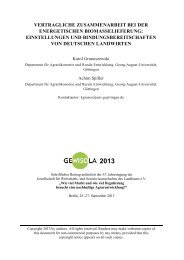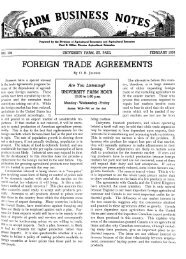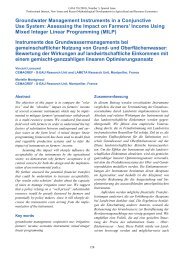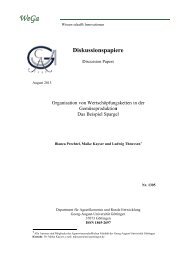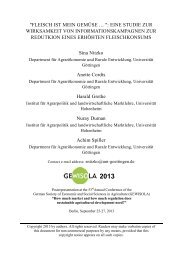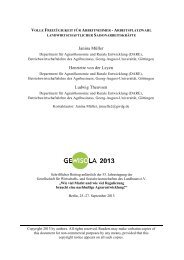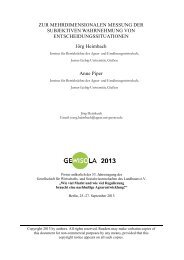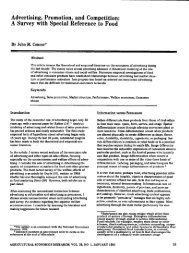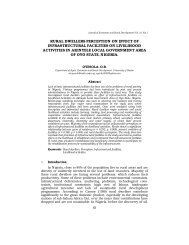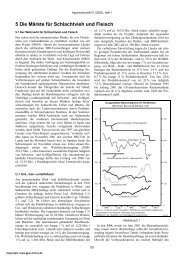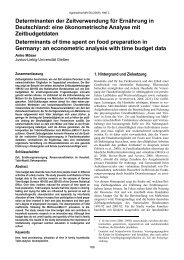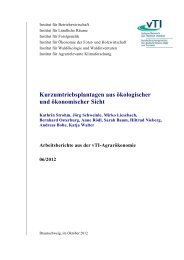District Institutes of Education and Training - Teacher Education
District Institutes of Education and Training - Teacher Education
District Institutes of Education and Training - Teacher Education
Create successful ePaper yourself
Turn your PDF publications into a flip-book with our unique Google optimized e-Paper software.
<strong>District</strong> <strong>Institutes</strong> <strong>of</strong> <strong>Education</strong> <strong>and</strong> <strong>Training</strong>: A Comparative Study in Three Indian States<br />
for written information by the education authority; <strong>and</strong> so on. These concerns are<br />
<strong>of</strong>ten put forward as explanations for why children are not ‘completing the course’.<br />
Those in authority positions tend to see these as teacher excuses used to mask an<br />
unwillingness to work, rather than heed an underlying issue: the resultant constant<br />
pressure <strong>of</strong> time.<br />
The Indian state requires teachers to carry out a significant element <strong>of</strong> work that<br />
is related either to social development (e.g. pulse polio drives), or to the<br />
maintenance <strong>of</strong> the democratic state (e.g. running polling stations). <strong>Training</strong> for<br />
teachers ignores this contextual reality <strong>and</strong> focuses only on their formal classroom<br />
role; <strong>and</strong> the content <strong>and</strong> competency load <strong>of</strong> syllabus over the year is organised<br />
on the assumption that teachers spend 100% <strong>of</strong> their time on classroom activities.<br />
Officially, the number <strong>of</strong> working days in the year is about 180, but teachers<br />
present overwhelming evidence, particularly in the lower primary stages, <strong>of</strong> a<br />
much shorter working year, into which the syllabus has to be crammed (see<br />
chapter 8).<br />
A further complication is that since the abolition <strong>of</strong> examinations at the lower<br />
level, children must be promoted if they attend school for 70% <strong>of</strong> the school year.<br />
This policy conflicts with the policy <strong>of</strong> using attainment <strong>of</strong> competency levels as an<br />
indicator <strong>of</strong> readiness to proceed:<br />
T11 In the 1st <strong>and</strong> 2nd Stds. we have to pass on the basis <strong>of</strong> attendance. So<br />
even if the children don’t know anything but they are regular we have to<br />
pass them. See this girl Ch<strong>and</strong>rika she doesn’t know even k-ko [abc] but<br />
she comes every day so I have to pass her (GUJ/ T 011, February 1999)<br />
This policy conflates attendance with learning. In so doing, it denies a teacher the<br />
opportunity to make pr<strong>of</strong>essional decisions about a child’s educational progress.<br />
2.3.4 <strong>Teacher</strong> agency<br />
<strong>Teacher</strong>s’ sense <strong>of</strong> being in a ‘deficit’ situation was a pervasive component <strong>of</strong> their<br />
accounts <strong>and</strong> actions across the study sites. This sense <strong>of</strong> deficit significantly shapes<br />
classroom processes, powerfully determining teachers’ expectations <strong>of</strong> children <strong>and</strong><br />
<strong>of</strong> themselves, <strong>and</strong> impacting substantially on their willingness to engage with<br />
training messages. A striking feature <strong>of</strong> many discussions with teachers is their<br />
relatively low sense <strong>of</strong> pr<strong>of</strong>essional agency, which is linked with their views on the<br />
contextual factors that for many <strong>of</strong> them seem to determine the possibilities <strong>of</strong><br />
success. <strong>Teacher</strong>s <strong>of</strong>ten report that they need to be made to work, <strong>and</strong> that unless<br />
supervisory arrangements are strengthened, they are unlikely to work harder. The<br />
onus for improving the quality <strong>of</strong> classroom processes is widely perceived to lie with<br />
the authorities, rather than to be dependent on any intrinsic motivation among<br />
44 DFID



